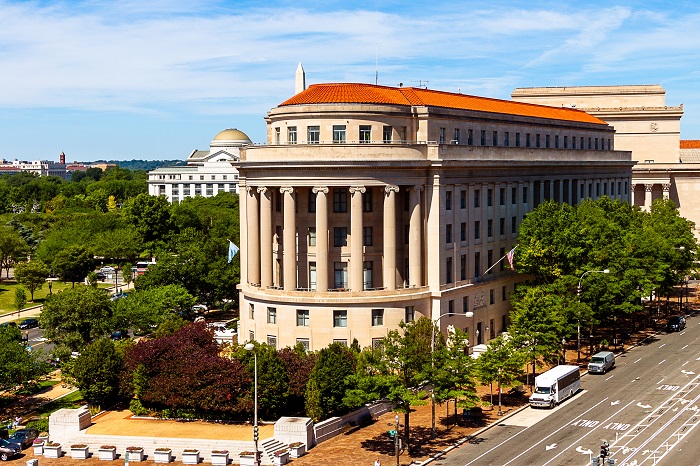 The Supreme Court of the United States recently held that the Federal Trade Commission Act allows permanent injunctions to prevent future violations but does not authorize the Federal Trade Commission to seek, or a court to award, equitable monetary relief such as restitution or disgorgement, except that the FTC may obtain monetary relief by first invoking its administrative procedures and then Section 19’s redress provisions (which includes limitations).
The Supreme Court of the United States recently held that the Federal Trade Commission Act allows permanent injunctions to prevent future violations but does not authorize the Federal Trade Commission to seek, or a court to award, equitable monetary relief such as restitution or disgorgement, except that the FTC may obtain monetary relief by first invoking its administrative procedures and then Section 19’s redress provisions (which includes limitations).
A copy of the opinion in AMG Capital Management, LLC v. FTC is available at: Link to Opinion.
The FTC filed a complaint against the petitioner alleging deceptive payday lending practices in alleged violation of the FTC Act, Section 5(a). 15 U.S.C. §45(a)(1). The trial court entered a permanent injunction to prevent the petitioner from committing future violations and relied on the same authority to direct the petitioner to pay $1.27 billion in restitution and disgorgement.
The Ninth Circuit rejected the petitioner’s argument on appeal that Section 13(b) does not authorize the award of equitable monetary relief.
The petitioner then sought certiorari in the Supreme Court. In light of recent differences that have emerged among the federal Circuit Courts of Appeal as to the scope of Section 13(b), the Supreme Court granted the petition.
The FTC has authority to enforce the FTC Act’s prohibitions on “unfair or deceptive acts or practices” by commencing administrative proceedings under Section 5. 15 U.S.C. 45(a)(1)–(2). Section 5(l) authorizes the FTC, following completion of the administrative process and the issuance of a final cease and desist order, to seek civil penalties, and it permits courts to “grant mandatory injunctions and such other and further equitable relief.” §45(l).
Furthermore, Section 19 authorizes courts to grant “such relief as the court finds necessary,” §57b(b), in cases where someone has engaged in unfair or deceptive conduct with respect to which the FTC has issued a final cease and desist order. §57b(a)(2)
Here, the FTC sought equitable monetary relief directly in the trial court under Section 13(b)’s authorization to seek a “permanent injunction” without using the FTC’s Section 5 administrative proceedings. §53(b). However, the Supreme Court held that Section 13(b) does not explicitly authorize the FTC to obtain court-ordered monetary relief and that such relief is foreclosed by the structure and history of the FTC Act. Id.
First, the Supreme Court noted that the language of Section 13(b) refers only to injunctions. Section 13(b) states, “in proper cases the [FTC] may seek, and after proper proof, the court may issue, a permanent injunction.” §53(b).
The Court interpreted the language and structure of Section 13(b), taken as a whole, to indicate that the words “permanent injunction” have a limited purpose, a purpose that does not extend to the grant of monetary relief. In the Court’s view, the provision focuses upon relief that is prospective, not retrospective, namely that of stopping seemingly unfair practices from taking place while the FTC determines their lawfulness. §53(a)
In addition, the Court held that the structure of the FTC Act beyond Section 13(b) confirms this conclusion. Congress in Sections 5(l) and 19 gave courts the authority to impose limited monetary penalties and to award monetary relief in cases where the FTC has issued cease and desist orders, i.e., where the FTC has already engaged in administrative proceedings.
Since in these provisions Congress explicitly provided for “other and further equitable relief,” §45(l), and for the “refund of money or return of property,” §57b(b), the Court concluded that it likely did not intend for Section 13(b)’s more cabined “permanent injunction” language to have a similarly broad scope.
Moreover, the Court observed that the latter provision, Section 19, comes with certain important limitations that are absent in Section 13(b). For instance, Section 19 applies only where the FTC begins its Section 5 process within three years of the underlying violation and seeks monetary relief within one year of any resulting final cease and desist order. §57b(d). And it applies only where “a reasonable man would have known under the circumstances” that the conduct at issue was “dishonest or fraudulent.” §57b(a)(2); see also §45(m)(1)(B)(2). In addition, Congress enacted these other, more limited, monetary relief provisions at the same time as, or a few years after, it enacted Section 13(b) in 1973.
The Court reasoned that it was highly unlikely that Congress would have enacted provisions in Section 19 expressly authorizing conditioned and limited monetary relief if the Act, via Section 13(b), had already implicitly allowed the FTC to obtain that same monetary relief and more without satisfying those conditions and limitations. Nor was it likely to the Court that Congress, without mentioning the matter, would have granted the FTC authority so readily to circumvent its traditional Section 5 administrative proceedings.
The Court thus read Section 13(b) as authorizing injunctive but not monetary relief, which produces a coherent enforcement scheme: the FTC may obtain monetary relief by first invoking its administrative procedures and then Section 19’s redress provisions (which includes limitations). The FTC may use Section 13(b) to obtain injunctive relief while administrative proceedings are foreseen or in progress, or when it seeks only injunctive relief.
Accordingly, the Supreme Court reversed the Ninth Circuit’s judgment and remanded the case for further proceedings consistent with this decision.
Photo: Jason/stock.adobe.com


